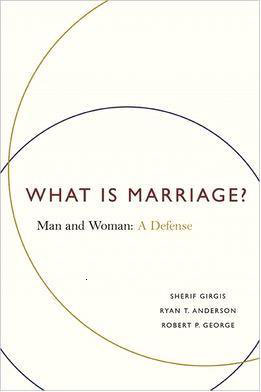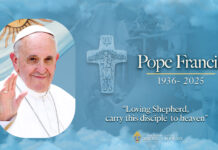
Mike Phelan, director of the Marriage and Respect Life Office for the Diocese of Phoenix, stopped in my office for a chat this morning at the Diocesan Pastoral Center. He was getting ready to speak with young adult leaders about defending marriage in a culture that is trying to redefine it.
He turned me on to this defense by Sherif Girgis, Ryan T. Anderson and Robert P. George.
Until recently, no society had questioned whether marriage would be anything other than a male-female union. What Is Marriage? identifies and defends the reasons for this historic consensus and shows why redefining civil marriage is unnecessary, unreasonable, and contrary to the common good. What Is Marriage? answers common objections: that the historic view of marriage is rooted in bigotry; that it is callous to people’s needs; or that it can’t show the harm of recognizing same-sex couplings.
Originally published in the Harvard Journal of Law and Public Policy, the book’s core argument quickly became the year’s most widely read essay on the most prominent scholarly network in the social sciences. Since then, it has been cited and debated by scholars and activists throughout the world as the most formidable defense of the tradition ever written. Join us as authors Sherif Girgis, Ryan T. Anderson, and Robert P. George discuss about what marriage is, why it matters, and how to talk about it.
Here’s the abstract Anderson’s “Marriage: What It Is, Why It Matters, and the Consequences of Redefining It”:
Marriage is based on the truth that men and women are complementary, the biological fact that reproduction depends on a man and a woman, and the reality that children need a mother and a father. Redefining marriage does not simply expand the existing understanding of marriage; it rejects these truths. Marriage is society’s least restrictive means of ensuring the well-being of children. By encouraging the norms of marriage—monogamy, sexual exclusivity, and permanence—the state strengthens civil society and reduces its own role. The future of this country depends on the future of marriage. The future of marriage depends on citizens understanding what it is and why it matters and demanding that government policies support, not undermine, true marriage.





